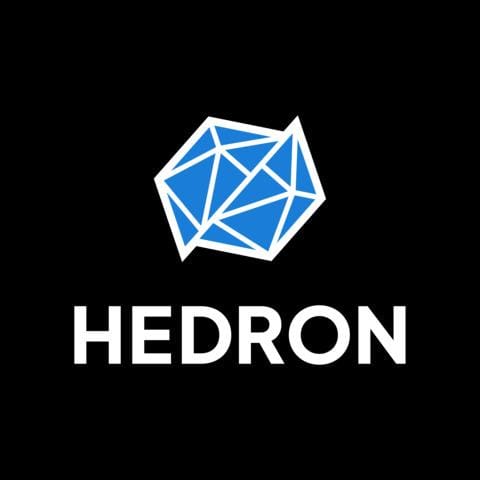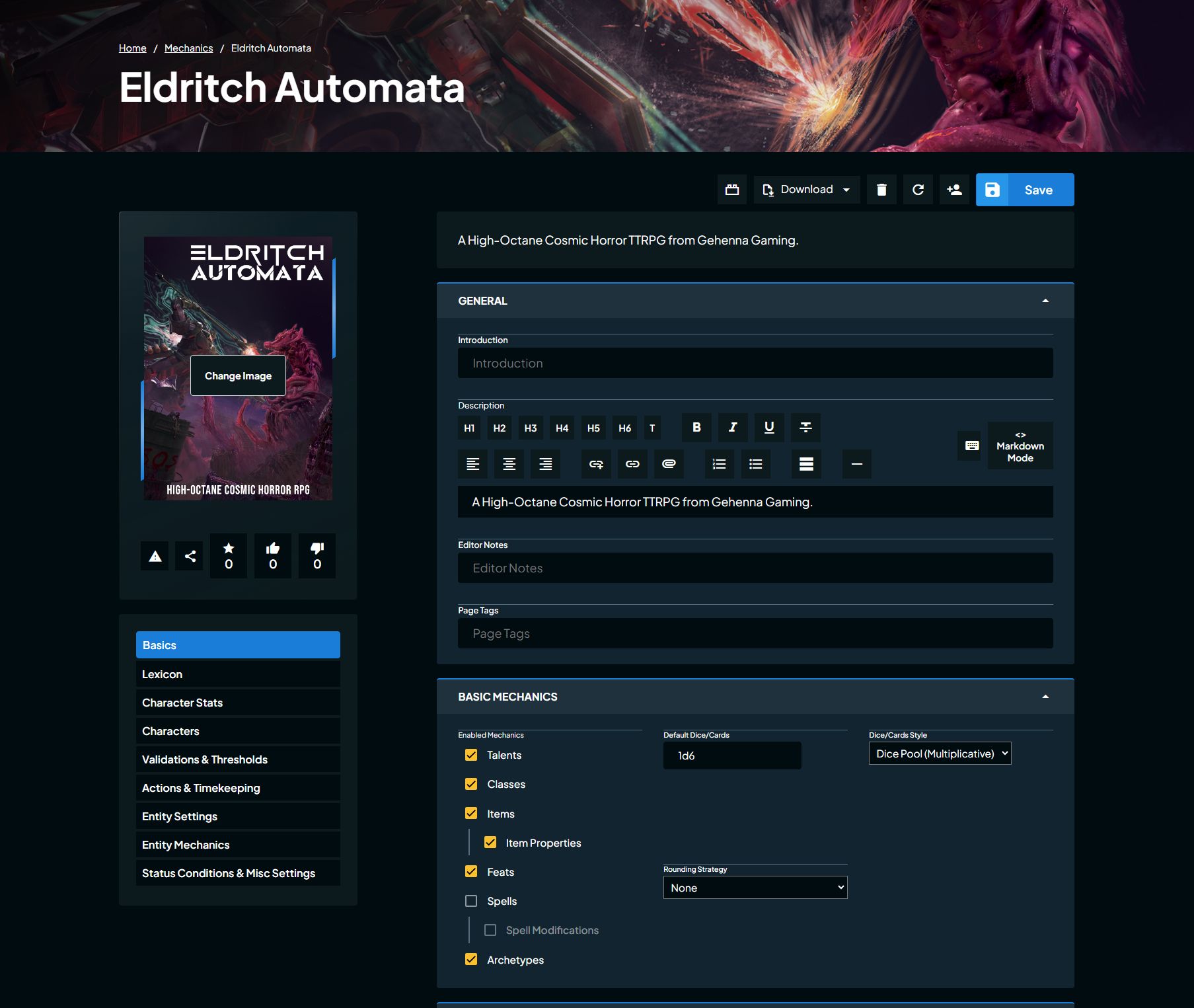- TTRPG Insider
- Posts
- Hedron's Push to Spread Indie RPGs on VTTs
Hedron's Push to Spread Indie RPGs on VTTs
Taking a closer look at how the upcoming VTT Hedron hopes to make it easy and cheap for small publishers to convert their games into a digital format and reach more players.
VTTs are an integral part of how people play TTRPGs online. Whether you want a map to move tokens, visual references for your scenes or interfaces for tracking rolls and dice, most game masters will consider adopting a VTT in some format. The most popular VTTs include systems like Roll20, Foundry, Alchemy VTT and many more. However, one that has caught my eye in recent weeks and months has been Hedron (formerly Tabletop Mirror), a VTT designed explicitly for those seeking to homebrew or create new games.

Hedron
TTRPG Insider (in its previous form) spoke with Hedron founder Varun Singh last year when he announced that he was crowdfunding a significant expansion of the VTT in Aug. 2024. The platform has undergone some substantial changes since then, including the incorporation of several new indie systems such as DC20, Paragons and more.
Part of the appeal of Hedron now is that it strives to make adding new systems easy and cheap, Singh told TTRPG Insider. While adding new games to VTT platforms like Roll20 can be rather time-intensive, Singh claims that he and his team of developers can do so faster and at a lower cost on Hedron, a significant selling point for independent creators in the market.

Varun Singh of Hedron
Hedron had just added Punk is Dead (a Mork Borg conversion focused on music and a post-apocalyptic world) before GenCon. The game’s publisher said that their product would be exclusive to Hedron. They didn’t do this “because we made them agree to platform exclusivity,” Singh told TTRPG Insider. “They just really liked us. The designer told me ‘Why would we use anyone else?’ That is the greatest phrase I, as a VTT creator, could hear.”
The platform has grown from 2,000 users to 110,00 users, Singh claims. Part of this was driven by the company’s acquisition of Role Gate, a play-by-post website in the summer of 2024 as well as a growing number of subscribers wanting something easier to publish homebrew content.
Hedron currently hosts homebrew content from 900 creators as well as the official rulesets for twenty different games (These include systems like Chaosium’s Basic Roleplaying Engine, Dungeons and Dragons’ rules, etcetera.) Singh intends to expand this quite a bit in the coming months and said he was in discussion with several smaller publishers to bring their games to life on the platform.
The appeal for indie creators collaborating with Hedron compared to Roll20 is the diminished cost, Singh claims. His team has worked with developers to bring their systems to the platform, depending on the game’s complexity and cost. It’s easy to bring something like a Mork Borg conversion (such as Punk is Dead) over since the base rules are already built in and it takes only a few modifications to adapt it. A more complex system may cost hundreds of dollars and take weeks to develop. But Hedron’s team offers the tools and services to create those conversions so that publishers can focus on other aspects of TTRPG publishing.

Hedron’s Interface
Singh was notably energetic and competitive, claiming that he and his team could work faster than the engineers at Alchemy or Roll20 to convert the rules required to run new TTRPGs to Hedron. While I’ll admit skepticism about Singh’s claims, it was hard to deny the infectiousness and excitement that lingered under every word he uttered during our conversation. He hopes to convince indie publishers to start releasing VTT demos on Hedron instead of quickstarts, which would make it a lot easier for people to ‘pick up and play’ games that they may want to back rather than just read through a PDF.
Hedron is currently available for free for most people, although a subscription service is required to get expanded capabilities, such as page storage or faster support from the company. It also hosts rulesets for several indie creators on its marketplace.

Whether you’re a designer, content creator or just the biggest fan at your table, TTRPG Insider delivers in-depth reporting, original interviews and regular roundups of the news that you will not find anywhere else. Let us help you become the best designer, player or dungeon master at your table.
Subscribe now and get the advantage you require to excel in this exceptional hobby and industry.

D&D’s Project Sigil
Three Reasons Why VTTs Matter
Most people often overlook virtual tabletops’ role in what they play and how it changes gameplay. When I want to play a TTRPG, I’m more interested in the ruleset or the setting, not the platform that I want to play on. But these technologies may have other subtle effects on how we play or think about game design by itself.
Here are three ways that playing on a VTT might change your tabletop RPG experience.
VTTs Expedite Gameplay: While I adore rolling physical dice and comparing it to my character sheet, I can’t deny that some people take longer to do the appropriate math to calculate whether or not they succeed at a skill check or hit an enemy with their weapon. On one hand, this helps move gameplay along at a faster rate. At the same time, our reliance on this technology can diminish our ability to perform mathematical calculations. I can calculate a D&D sheet expeditiously because I’ve made multiple on paper, but I rarely have to use that part of my brain due to the auto-dice roller in my Roll20 game.
VTTs Offer Extra Immersion: While some VTTs will just offer players dice and a grid to play on, others may provide tools for increased immersion. The mods I use on my personal Foundry server allow my Fifth Edition D&D players to cast spells with magical effects, see scenes and receive handouts with a click of the button. These assets are as delightful as someone creating handouts at home, but they may cost additional money and skills to do well. It can also diminish the reliance on the theatre of the mind and require additional skills to keep it interesting.
VTTs Host A Select Number of Games: I have a lot of games on my shelf, but only so many have VTT capabilities. On one hand, this makes certain games a lot easier to pick up and play. If I want to play Vampire the Masquerade, then there’s plenty of VTTs that support the rules for it. It makes convincing people to play a lot easier. But if I want to play something from the indie scene (like The Cunning Folk), then I either have to roll the dice on specific digital platforms and host the PDFs myself or do so on physical copies and just use a voice chat to play.
I don’t list these features to imply they’re good or bad for the hobby. Instead, it’s a simplistic attempt to talk about the technology in a very “Marshall McLuhan” manner about how the tools we use form the hobby as much as the game design does, and an aspect that I don’t see enough people talking about. They’re also something that designers, publishers, and fans have to consider when they want to spread new content, since creating the sheets and tools to play digitally isn’t easy or cheap.

What are your thoughts? Send any scoops, tips or press releases to [email protected].